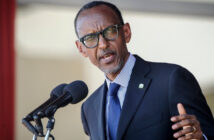The first casualty of the Brexit vote as expected is the British Prime Minister, David Cameron. He has resigned as the Prime Minister after he failed to led the Remain to victory in the Brexit vote.
“I do not think it would be right for me to be the captain that steers our country to its next destination,” he said. Speaking outside 10 Downing Street, he said the British people had made a choice “that needs to be respected” and all sides, both Remain and Leave have a duty to make the new situation work.
“Now that the decision has been made to leave, we need to find the best way,” he said. Mr Cameron said it was not a decision he took lightly, and that he expected a new prime minister to be in place before the Conservative Party conference in October.
Mr Cameron called the vote on Brexit in 2013 under pressure from the anti-EU wing of his Conservative Party and Ukip, hoping to end decades of debate over the UK’s ties with Europe. He moved to reassure both UK citizens living in the EU, and EU citizens in the UK that there would be “no immediate change in circumstances”.
The United Kingdom voted to leave the European Union after 43 years, plunging the region and its neighbours into an uncertain future and shocking international financial markets.
With a turnout of 72.2 per cent, 51.9 per cent voted to leave; 48.1 per cent voted to remain.
Over 17 million people voted to leave (17,410,742), while just over 16 million (16,141,241) voted to leave.
The result surprised Leave campaigners as well as most pollsters and political analysts. London, Scotland and Northern Ireland voted strongly to remain in the EU. But there were big majorities for Leave in other parts of the country, particularly in the north of England, and Wales and the English shires also backed Brexit.




